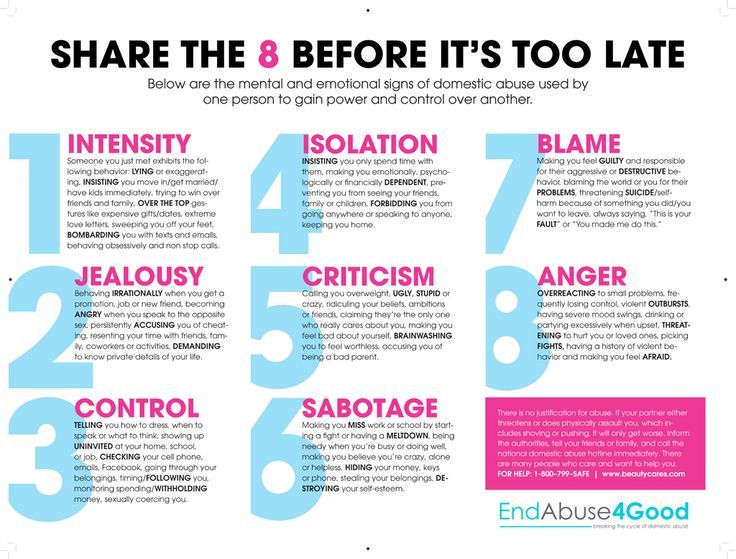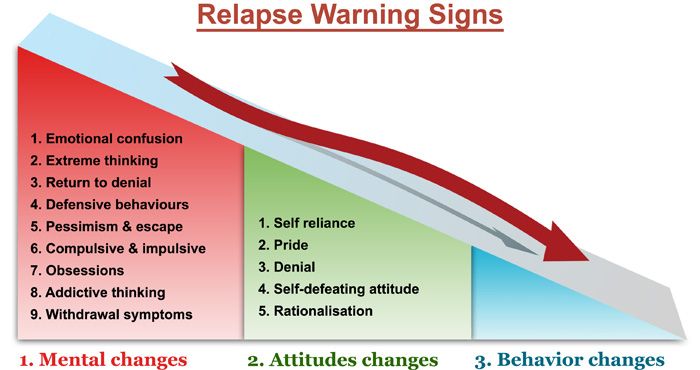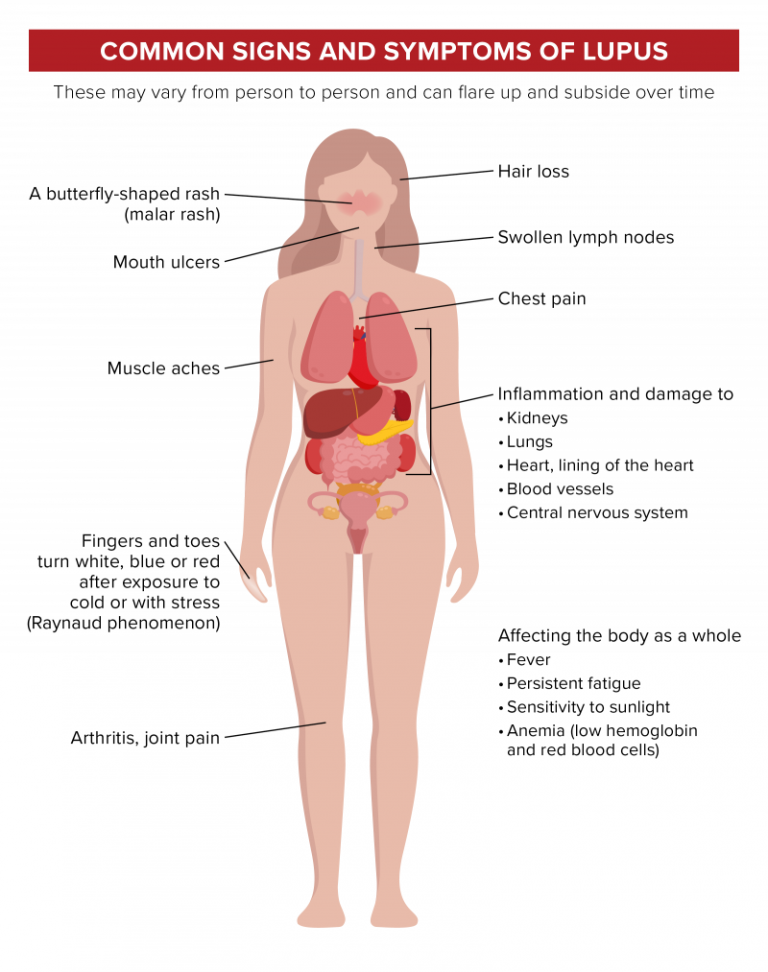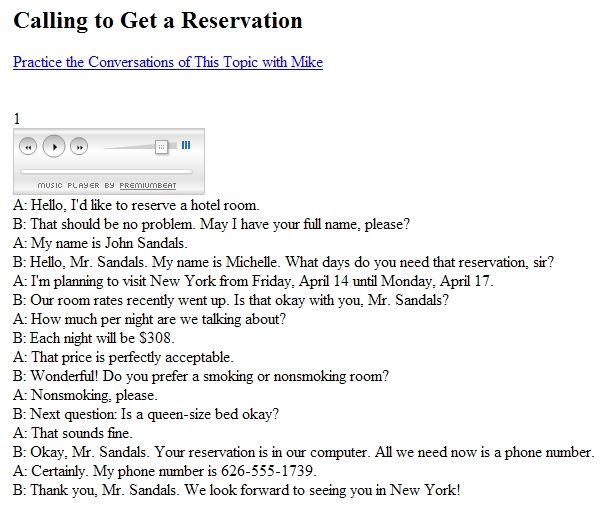Hoffman report apa
The Investigation into the American Psychological Association (APA)
The Hoffman Report is the informal name for the 2015 investigation into the American Psychological Association’s (APA) practices regarding its relaxing of ethical standards for psychologists involved in torture interrogations. The full name for the report is, Independent Review Relating to APA Ethics Guidelines, National Security Interrogations, and Torture. It was authored by attorneys David Hoffman, Danielle Carter, Cara Viglucci Lopez, Heather Benzmiller, Ava Guo, Yasir Latifi and Daniel Craig of the law firm, Sidley Austin, LLP.
It was an extensive investigation spanning 6 months that reviewed over 50,000 documents and conducted over 200 interviews with 148 people. The report notes that, “Although most individuals were quite cooperative and willing to meet with us, that sentiment was not universal, and there were several individuals who declined to meet with us or did not respond to our requests.
” Also, “This inquiry is made more difficult by the amount of time that has elapsed since the important events occurred. The key events relating to the APA task force report occurred 10 to 11 years ago, and the events relating to the ethics code revision occurred 13 to 19 years ago.” The independent investigation resulted in a 542-page final report.
We will continuously update this Special Report throughout the week as new analysis and reactions are published regarding the Hoffman Report.
Independent Review Relating to APA Ethics Guidelines, National Security Interrogations, and Torture (PDF) July 2, 2015
The Hoffman Report: Background & Introduction July 2, 2015
Press Release and Recommended Actions: Independent Review Cites Collusion Among APA Individuals and Defense Department Officials in Policy on Interrogation Techniques American Psychological Association July 10, 2015
Outside Psychologists Shielded U.S. Torture Program, Report FindsThe New York Times July 10, 2015
The Hoffman Report: After Years of Lies, Who Holds the APA Accountable? John M. Grohol, Psy.D. July 11, 2015
Grohol, Psy.D. July 11, 2015
US torture doctors could face charges after report alleges post-9/11 ‘collusion’The Guardian July 11, 2015
American Psychological Associations Ethics Office Seems to be Toothless, Lazy John M. Grohol, Psy.D. July 12, 2015
PsySR Responds to Hoffman Report about APA (PDF) Psychologists for Social Responsibility (PsySR) July 13, 2015
Radical Reform Required at APA Chris Ferguson, Ph.D. July 13, 2015
Opening Comments to the American Psychological Association (APA) Board of Directors Steven Reisner and Stephen Soldz Coalition for an Ethical PsychologyDescribes a meeting that took place on July 2, 2015 at the APA, where the two authors laid out guidelines and suggestions for how to portray the Hoffman Report and APA’s reaction after its release. Steven Reisner called for Norman Anderson, L. Michael Honaker, Nathalie Gilfoyle, Rhea Farberman, Ellen Garrison, Heather Kelly, Geoffrey Mumford, Stephen Behnke to be fired; only Behnke actually was. July 13, 2015
July 13, 2015
Manipulation of the American Psychological Associations Council of Representatives John M. Grohol, Psy.D. July 13, 2015
‘A national hero’: psychologist who warned of torture collusion gets her dueThe Guardian July 13, 2015
Lessons must be learned after psychology torture inquiryNature editorial July 14, 2015
APA Leadership Resignations: Anderson, Honaker & Farberman John M. Grohol, Psy.D. July 14, 2015
3 Leave Jobs Over Psychologists Involvement in Terrorism InterrogationsThe New York Times July 14, 2015
Comments on the Hoffman Report (PDF) Gerald P. Koocher and Ronald F. Levant July 14, 2015
APA overhauling policies and leadership after torture reportScience Insider July 14, 2015
Coalition Open Letter on APA Complicity in Torture Interrogations Coalition for an Ethical PsychologyA historical reference clearly demonstrating that critics knew the findings of the Hoffman Report five years before it was ever conceived, but that the APA stonewalled, lied, and turned a blind eye to critics of its policies and behaviors. What did Carol Goodheart and APA officials ever do in reaction to this letter? Silence. August 11, 2010
What did Carol Goodheart and APA officials ever do in reaction to this letter? Silence. August 11, 2010
Did the American Psychological Associations Board Violate DC Law? John M. Grohol, Psy.D. July 16, 2015
Torture, impunity and the American Psychological Association Amy Goodman and Denis Moynihan, Democracy Now! July 16, 2015
How the Largest Association of U.S. Psychologists Colluded in Torture Newsweek July 18, 2015
Sidley Partner Rattles Psychology Field with Torture Report The American Lawyer July 18, 2015
American Psychological Associations Terrible, Horrible, No Good, Very Bad Week John M. Grohol, Psy.D. July 19, 2015
Report on interrogation tactics roils academics: Psychologists linked to Harvard defend work with PentagonThe Boston Globe July 20, 2015
APAs Letter to its Council of Representatives American Psychological Association July 20, 2015
Torture, APA, and the Hoffman Report: What Now?
Source: Linda M. Woolf
Woolf
On July 2, 2015, David Hoffman and colleagues submitted the Independent Review Relating To APA Ethics Guidelines, National Security Interrogations, And Torture to the Board of Directors of the American Psychological Association (APA). If all of the elements of the Hoffman Report are accurate—and I have no reason to believe this Report is not accurate—then, several key points are quite clear:
- Members of the APA leadership/staff were indeed collusive with the torture policies of the Bush Administration following the attacks of 9/11 and the resulting wars.
- Before 2001, there was a push for the Ethics Office to be less aggressive in pursuing ethics policy and adjudication of ethics complaints. The failure of APA to maintain a rigorous Ethics policy paved the path for psychologist collusion in torture and other prisoner abuses.
- Key APA leaders/staff actively endeavored to weaken anti-torture Resolutions/Referendums through a pattern of manipulation, misdirection, and misinformation.

- Key APA leaders/staff engaged in a pattern of deception to hide their complicity in torture and abusive interrogation practices from other APA leaders, members volunteering in the Association, the broader membership, as well as the wider population.
- The fox appeared to be guarding the chicken coop. Under current APA procedures, all ethics- related policy and adjudication of ethics complaints must be coordinated with and through the Ethics Office. Yet, Dr. Stephen Behnke, Director of the APA Ethics office, was at times also on the Department of Defense (DoD) payroll. The Ethics Office should serve the membership of the APA and use the full resources of that office to maintain and promote ethics and the protection of human welfare and human rights. Unfortunately, it now appears that Dr. Behnke used that office to maintain and promote the goals of the DoD and, by extension, the government’s abusive interrogation policies.
Based on the findings of the Hoffman Independent Review and Report, APA Council of Representatives should undertake several actions immediately. These actions should be at minimum be three-pronged. First, and foremost, APA needs to further strengthen its policies related to torture, prisoner interrogations, and national security concerns. Second, the APA needs to clean house and address the wrongs of the past. Third, APA must review policies, procedures, and organizational structures to insure that human rights are moved to the forefront of APA values.
These actions should be at minimum be three-pronged. First, and foremost, APA needs to further strengthen its policies related to torture, prisoner interrogations, and national security concerns. Second, the APA needs to clean house and address the wrongs of the past. Third, APA must review policies, procedures, and organizational structures to insure that human rights are moved to the forefront of APA values.
Three key action recommendations:
- Immediate ban on psychologist involvement in interrogations.
- Termination of APA staff and resignation of leadership identified as collusive in torture or engaging in a plan of institutional deceptiveness about such collusion.
- Creation of an APA Office and Committee for Human Rights.
Torture, Prisoner Interrogations, and National Security
Torture and abusive interrogations do not garner useful information. These destructive techniques may enable us to feel a little less helpless in the face of terror but ultimately only fuels the very hate we seek to snuff out. Most importantly, torture, abusive interrogations, cruel forms of incarceration, and imprisonment without due process are human rights violations. As such, the APA Ethics Code should demand opposition to such practices; the APA Ethics Office should actively promote, educate, and endeavor to maintain the highest ethical standards of psychologists. Sadly, according to the Hoffman Report, the goal of the Ethics Office became one of promoting prisoner interrogations at the expense of the detainees. The State became the client; the prisoner became a means to an end.
Most importantly, torture, abusive interrogations, cruel forms of incarceration, and imprisonment without due process are human rights violations. As such, the APA Ethics Code should demand opposition to such practices; the APA Ethics Office should actively promote, educate, and endeavor to maintain the highest ethical standards of psychologists. Sadly, according to the Hoffman Report, the goal of the Ethics Office became one of promoting prisoner interrogations at the expense of the detainees. The State became the client; the prisoner became a means to an end.
APA should immediately take additional steps to undo damage caused by psychologists post-9/11 and the 2005 PENS Report. As noted in the Hoffman Report, APA rescinded PENS and passed a comprehensive Policy Related to Psychologists' Work in National Security Settings and Reaffirmation of the APA Position Against Torture and Other Cruel, Inhuman, or Degrading Treatment or Punishment and accepted the accompanying Task Force Report. The process to rescind PENS and adopt a strong anti-torture policy relevant to national security settings required two years of work and significant consultation with individuals and groups both within and outside of APA. This policy is the strongest, most comprehensive APA anti-torture policy to date. Nonetheless, in light of the serious violations within APA outlined in the Hoffman Report identifying systematic manipulation in the drafting of APA policy, several actions steps should be taken immediately, in relation to protecting prisoners:
The process to rescind PENS and adopt a strong anti-torture policy relevant to national security settings required two years of work and significant consultation with individuals and groups both within and outside of APA. This policy is the strongest, most comprehensive APA anti-torture policy to date. Nonetheless, in light of the serious violations within APA outlined in the Hoffman Report identifying systematic manipulation in the drafting of APA policy, several actions steps should be taken immediately, in relation to protecting prisoners:
- APA should institute immediately a moratorium on psychologist involvement in interrogations. Following the passage of the 2006 APA Resolution Against Torture, Neil Altman introduced a Moratorium Resolution before APA with an accompanying Justification Statement. Sixteen members of Council co-sponsored this Resolution. The Society for the Study of Peace, Conflict, and Violence (Division 48, APA) Executive Committee endorsed this effort with a Call for an APA Moratorium Resolution.
 The Hoffman report made clear that the Ethics Office coordinated efforts to defeat this Resolution through a pattern of misinformation and manipulation. Consequently, APA should immediately institute a prohibition on psychologist involvement in national security interrogations. Moreover, a ban on interrogation involvement should extend to domestic law enforcement settings, as well. When a psychologist makes a decision to protect the nation-state, and not the individual, fundamental human rights suffer.
The Hoffman report made clear that the Ethics Office coordinated efforts to defeat this Resolution through a pattern of misinformation and manipulation. Consequently, APA should immediately institute a prohibition on psychologist involvement in national security interrogations. Moreover, a ban on interrogation involvement should extend to domestic law enforcement settings, as well. When a psychologist makes a decision to protect the nation-state, and not the individual, fundamental human rights suffer. - APA also must implement the 2008 Petition Resolution immediately as ENFORCEABLE policy. As made clear in the Hoffman report, APA only allowed the Petition Resolution to go to the membership for a vote because APA Legal and the Ethics Office had declared the policy unenforceable—a mechanism designed to avoid implementation and meaningful action. With the Petition Resolution designated as enforceable policy, APA immediately should call for all psychologists to leave national security sites such as Guantanamo, “unless they are working directly for the persons being detained or for an independent third party working to protect human rights.
 ”
” - APA should develop a Task Force composed of APA members and non-APA members including ethicists and human rights scholars to review and, if necessary, revise all APA anti-torture polices to insure such policies are in keeping with International Human Rights Declarations/Conventions and human rights law and policy. This review should occur whether such policies are applicable to National Security Settings or other settings (e.g., prisons, hospitals, communities; the 2006 Resolution Against Torture extends to non-military sites) in which abuse may occur.
- APA should develop a mechanism to provide care and treatment, as applicable, for detainees who experienced torture and abuse while a detainee in a national security setting.
- APA must immediately contact the DoD Medical Command to have the PENS Report removed from official policy regarding involvement of psychologists in interrogations.
- APA must clearly communicate any moratorium policy and/or implementation of the Petition Resolution to the United States government, including the President, Congress, Department of Defense, Department of Justice, and the Central Intelligence Agency.
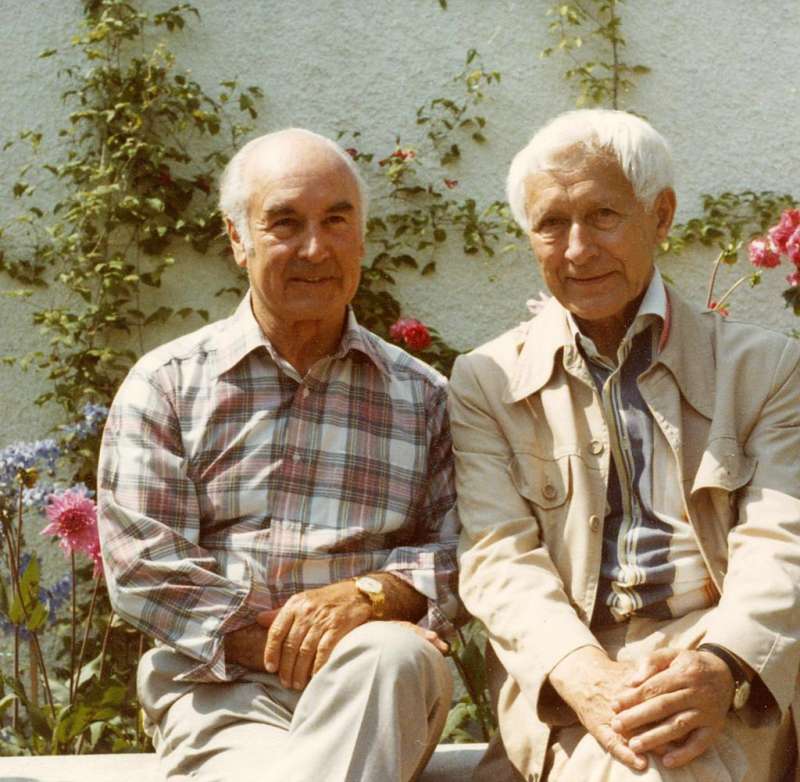
Rectifying the Problems of the Past
I do not believe it is not enough for APA to simply acknowledge the errors of the past. Rather, APA must take steps organizationally to rectify the violations of the members’ and public’s trust and to insure that these disturbing events never happen again.
- APA should immediately terminate staff members clearly identified as collusive in torture or engaging in a plan of institutional deceptiveness. APA leadership identified as collusive in the same actions should be required to resign their governance positions. These actions should be made public to the membership as a first step in rebuilding trust in the organization.
- APA, in concert with outside human rights organizations (e.g., AAAS Human Rights Program), should organize a special conference to address, acknowledge, and learn from the abuses of the past. APA should publish conference proceedings and develop mechanisms for additional discussion/conferences aimed at future policy/organizational development, as well as documentation of past abuses.

- APA should re-open circumvented ethics complaints and appoint a special committee, inclusive of APA members and non-members, to evaluate those complaints. Moreover, APA should pro-actively be involved in pursuit of ethics/criminal complaints against non-APA members involved in torture at the state, military, or national level.
- APA should revise its Ethics Webpages to clarify and articulate APA policy related to torture as well as National Security settings. Until a review of APA anti-torture policy is completed, APA immediately should make its strongest and most comprehensive anti-torture policy, Policy Related to Psychologists' Work in National Security Settings and Reaffirmation of the APA Position Against Torture and Other Cruel, Inhuman, or Degrading Treatment or Punishment and the accompanying Task Force Report visible and readily accessible on the Ethics Office website, as repeatedly requested over a two year period by the Task Force authors.
- APA should evaluate and revise policies concerning leadership/staff conflict of interest.

- APA should evaluate and revise policies concerning dual employment for staff, particularly for staff in leadership position.
- APA should develop mechanisms for committee and task force appointments to avoid bias and reflective of broader Association interests.
Movement Towards the Future
- APA should immediately develop an Office and Committee for Human Rights. Such committees exist in a broad range of professional organizations (e.g., American Academy of Arts and Sciences, American Anthropological Association, American Association for the Advancement of Science, Association of American Geographers, American Chemical Society, American Educational Research Association, American Mathematical Society, American Physical Society, American Political Science Association, American Statistical Association, National Academies of Science). APA should consult with and coordinate with Human Rights organizations in the design and development of such an office.

- APA immediately should evaluate its Web resources related to human rights and significantly expand its offerings/materials. All APA directorates should develop and disseminate information and materials concerning human rights relevant to the focus of each directorate.
- APA should support the development of books, curricular materials, and CE Programming aimed at the teaching of human rights, the recognition and report of human rights violations, as well as prevention, treatment, and recovery from human rights violations on both the individual and community levels.
- APA Convention should designate hours for human rights programming. APA should provide gratis vendor/exhibitor space at the Convention to the United Nations and other human rights organizations.
- APA should develop mechanisms to recognize psychologists (students, early career psychologists, scholars, and practitioners) and members of the public and other organizations nationally and internationally working in human rights arenas (e.
 g., awards, fellow status).
g., awards, fellow status). - APA should engage in educational endeavors aimed at teaching the public about psychology and human rights, inclusive of the dangers and harm associated with the use of torture and cruel, inhuman, or degrading treatment or punishment. Too often, the general public believes the myth—perpetuated on television—that torture is an effective and, at times, necessary form of interrogation. APA should lead the endeavor to dispel this destructive myth.
- APA should conduct a thorough review of the Ethics Code, Office, and procedures. This review should be conducted by a Task Force inclusive of APA members but also non-members and ethicists from outside of the discipline. APA must develop checks-and-balances to provide oversight of the Ethics Office as well as other vulnerable and significant positions/offices. Until this review is completed, the APA Ethics Office immediately should change procedures to share ALL ethics complaints with the entire Ethics Committee, as a check.
 Currently, the Ethics Office can dismiss complaints without the eyes and discussion of the entire elected committee.
Currently, the Ethics Office can dismiss complaints without the eyes and discussion of the entire elected committee. - APA should review newly instituted governance procedures to insure the broadest level of member involvement in governance and the decision-making process.
Psychologist Carolyn Payton, the first woman and the first African-American Director of the United States Peace Corps, in a 1984 address to the APA asked, “Who must do the hard things?” She argued, “I would suggest that it is absurd for us not to make our stand clear on matters of injustice, that failure to do so does grave image damage to us in the public's eye, and that to continue to ignore damage done by social injustices that are readily apparent through use of our sense organs and consciences severely weakens our credibility.”
Unfortunately, the credibility of APA and the profession of psychology has been weakened. Although, over the past decade, there have been many within and outside of APA working diligently to fight against psychologist involvement in torture and for the protection of detainees, others individuals were working diligently to thwart such efforts. It is eminently clear from the Hoffman Report that there were those within the APA who endeavored to facilitate, promote, and collude in the gross human rights violations committed by the U.S. government in the name of national security. The Hoffman report also makes clear that there were others within APA who endeavored to hide this collusion and mislead the membership and wider population. We cannot ignore these violations. We must now do the “hard things.” I call on APA to institute the changes noted above and move towards making the Association and the profession a beacon for human rights and social justice.
It is eminently clear from the Hoffman Report that there were those within the APA who endeavored to facilitate, promote, and collude in the gross human rights violations committed by the U.S. government in the name of national security. The Hoffman report also makes clear that there were others within APA who endeavored to hide this collusion and mislead the membership and wider population. We cannot ignore these violations. We must now do the “hard things.” I call on APA to institute the changes noted above and move towards making the Association and the profession a beacon for human rights and social justice.
Teaching Lessons from Our Latest Scandal in Psychology World of Psychology
Guest Blog Post Amanda Larsen, MA
[ Blogger Note: In July 2015, David Hoffman and his colleagues published an investigative report on their investigation that the American Psychological Association colluded with the Department of Defense in such a way as to facilitate the torture of detainees at Guantanamo Bay. The Hoffman Report found among others:
The Hoffman Report found among others:
- "APA officials have been secretly collaborating with Department of Defense officials to fight back efforts by the APA Council of Representatives to introduce and pass resolutions that would permanently ban the participation of psychologists in interrogations at Guantanamo Bay and other U.S. detention facilities overseas."
- “In numerous confidential exchanges and email conversations, the APA Director of Ethics routinely sought and received pre-screening from the influential senior head of psychology at US Army Special Operations Command before determining what the APA's position should be, that public statements should be released, and what strategy to pursue on this issue.”
- “Handling complaints about ethical relationships with prominent national security psychologists was handled improperly in an attempt to protect these psychologists from censure.
This spring I taught my first ethics course since the Hoffman paper came out. It was excruciating to have my students read portions of the report and discuss how psychologists became involved in "enhanced interrogation techniques" or torture, and how trusted colleagues and professional associations violated, bypassed, and disrespected our Code of Ethics.
It was excruciating to have my students read portions of the report and discuss how psychologists became involved in "enhanced interrogation techniques" or torture, and how trusted colleagues and professional associations violated, bypassed, and disrespected our Code of Ethics.
At the end of the semester, I attended a conference and met with Amanda Larsen, who is both a student and teacher, and thought very hard about what she had learned about the Hoffman Report. I asked her to share her experience. -mitch ]
- The exercise of our freedom and intelligence Part 2
- Is it time to give up control?
- How the rich are destitute
- Transhumanism could change racism in the future
- An analytical approach to finding your career
Amanda Larsen, MA
Source: Amanda Larsen
I read the report to the American Psychological Association Board of Directors Select Committee: An Independent Review Concerning APA Guidelines on Ethics, National Security Surveys, and Torture (The Hoffman Report) and presented it to my classmates, many of whom were students of a master's degree in Professional Counseling.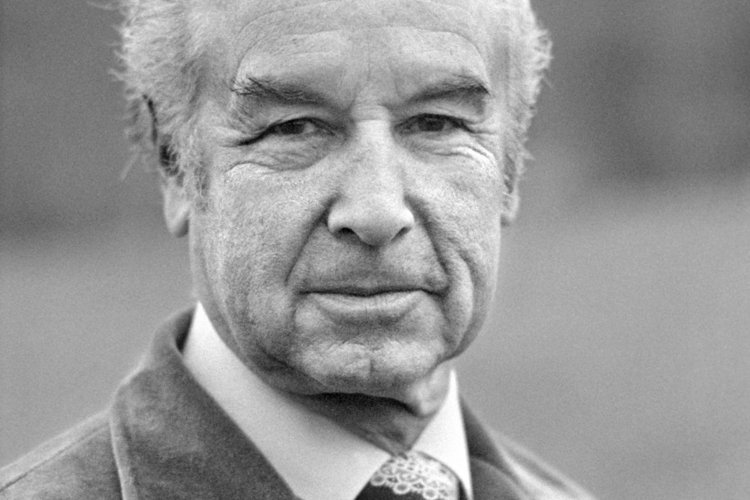 I have read the entire report, many related papers, and the chart that APA posted. Me as a member of Division 19A: Society of Military Psychology, I also integrated their perspectives. After introducing my ethics class, I was asked to invite lectures to other classes and speak at regional conferences. Here is a snapshot of what I learned in the process.
I have read the entire report, many related papers, and the chart that APA posted. Me as a member of Division 19A: Society of Military Psychology, I also integrated their perspectives. After introducing my ethics class, I was asked to invite lectures to other classes and speak at regional conferences. Here is a snapshot of what I learned in the process.
The scandal and the Hoffman report changed us. Forever. Like other important events in the history of psychology, the torture scandal and the Hoffman report left a permanent mark on our field. It's not something we'll talk about for a year and then never mention again. There are real, profound implications of the Hoffman report, and the dominoes haven't stopped falling. Senior APA leaders have left. Of course there will be lawsuits. There is talk of a change to the current APA code of ethics (last changed in 2010) that will have wide-ranging, long-term implications for our area. This question has carved a permanent stance across the syllables of many classes—ethics, contemporary issues, professional development, and more.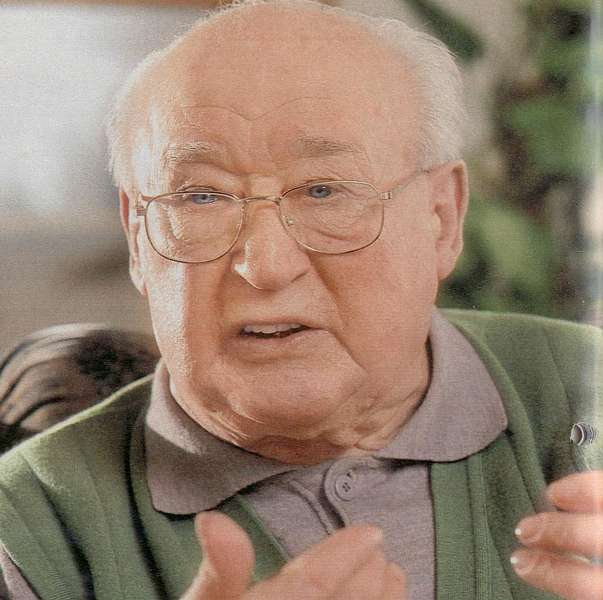 As an awkward episode as it concerns psychologists, I encourage students and teachers to dive into events and issues—to continue the important dialogues they have prepared.
As an awkward episode as it concerns psychologists, I encourage students and teachers to dive into events and issues—to continue the important dialogues they have prepared.
Scandal brings up a lot of complicated emotions, and it's really hard to talk about them. After every lecture I give, the room feels heavy. If there is immediate discussion, it is complex and often content based. People are reluctant to process evoked emotions. Hoffman's report touches us deeply, not only as psychologists but as human beings. I am reminded of my immediate, visceral reactions to examining the scandal. I remember being embarrassed, overwhelmed and angry. I remember being torn apart by my interest in military psychology. I also remember how my psychotherapy regime started me in a direction that believes that everyone does their best in their circumstances. I'm still trying to balance my conflicting reactions.
- Animal life: number of feelings and feelings
- What if we are wrong about what is supposed to bring us joy?
- The Facts of (Business) Life
- Compassionate conservation matures and approaches
- Behavioral science solution for lies in politics
I learn more every time I submit. The people who come up to me when I present have very different experiences and areas of expertise than I do. Every conversation goes in a different direction. I taught me the science of effective interrogation techniques, the similarities between the Hoffman report and other historical events in psychology, and the differences between civilian and military cultures. Because of these conversations, my foundation for learning has become stronger. The famous quote: “He who dares to teach never stops learning”, I thought about every presentation. It is a constant reminder of the bidirectionality and constructivist nature of education.
The people who come up to me when I present have very different experiences and areas of expertise than I do. Every conversation goes in a different direction. I taught me the science of effective interrogation techniques, the similarities between the Hoffman report and other historical events in psychology, and the differences between civilian and military cultures. Because of these conversations, my foundation for learning has become stronger. The famous quote: “He who dares to teach never stops learning”, I thought about every presentation. It is a constant reminder of the bidirectionality and constructivist nature of education.
How I try to keep learning and keep an open mind when I teach. These "teaching tips" can be useful for almost any kind of learning, but because of the emotional nature of the topics covered, I find them indispensable in teaching scandal.
- I encourage students to review the summary of Hoffman's report before class.
 Depending on the requirements of the class, I provide them with a summary report summary report (which is about 70 pages long).
Depending on the requirements of the class, I provide them with a summary report summary report (which is about 70 pages long). - I'm including an extra document to help students track moving shapes. The Hoffman Report has a long timeline, many acronyms, and many, many players. Having this information in front of them helps students pay more attention to the big picture and their own reactions.
- I'm including small group discussions because I'm having a hard time getting a class of 25 to process in general. By starting discussions in small groups and then coming together as a large group, I help students digest what they hear and start processing it in a safe environment.
- I carefully consider the "home message message" I want from my audience. For example, I consider the level of students (bachelor, master or doctorate) and their investment in this area:
- When teaching doctoral students, I hope they can swallow the picture of and details.
 Assuming they had some experience in this area, less attention is paid to what ethics and APA are. We spend more time thinking about the implications of the scandal and the Hoffman report - and how they will affect students after graduation (specifically the proposed APA policy changes and Code of Ethics).
Assuming they had some experience in this area, less attention is paid to what ethics and APA are. We spend more time thinking about the implications of the scandal and the Hoffman report - and how they will affect students after graduation (specifically the proposed APA policy changes and Code of Ethics). - I encourage graduate students (who are not usually APA members) to discuss their own homecoming reports. I want them to rate their role in professional organizations and their voice in their chosen professions.
- This fall I am teaching my first student. Bachelors do not take an ethics class in psychology and probably do not participate in professional organizations such as the APA. They may not even be specialists in psychology! For this group, the details may be less important. However, I want them to come away with a basic overview of the issues raised, what the Hoffman Report says, and how it affects the field of psychology. This is an excellent opportunity to discuss what ethics and professional organizations are, the useful roles they play for mental health professionals, and their potential disadvantages.

————————-
Amanda Larsen is a second-year postdoctoral fellow in psychology at the University of Northern Colorado. Before moving to Colorado, she received her master's degree in couples and family therapy from Adler University in Chicago, Illinois. Her main research interests include health perception and behavior, military psychology, and family systems.
Mitch Handelman is a professor of psychology at the University of Colorado Denver. With Samuel Knapp and Michael Gottlieb, he co-wrote Ethical Dilemmas in Psychotherapy: Positive Approaches to Decision Making (American Psychological Association, 2015). Mitch is also co-author (with Sharon Anderson) of Ethics for Psychotherapists and Counselors: An Active Approach (Wiley-Blackwell, 2010) and Associate Editor of the two-volume Handbook of the Ethics of Psychology APA (American Psychological Association, 2012). But here's what he's most proud of: he collaborated with pioneering musician Charlie Burrell on Burrell's autobiography.
© 2016 Mitchell M. Handelsman. All rights reserved
APA, torture and context World of Psychology
Did the APA collude with torture? Was the Association involved in "burning before the war" for profit? How deep does the conspiracy support "extended interrogations" within the APA? Were there despicable actions by those who were in the APA under the influence of "incredible vanity and contempt"?
Source: Linda M.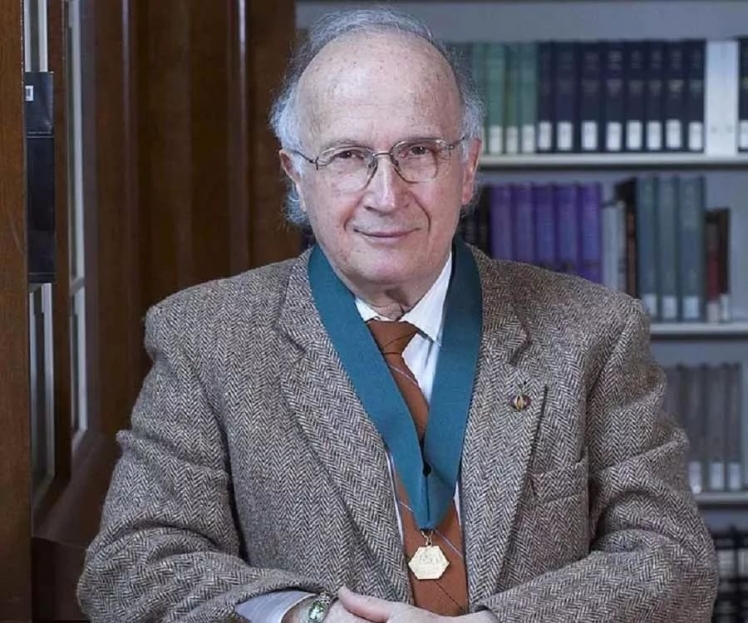 Wolf
Wolf
Questions such as those based on the assumption of fact lead to debate within the APA in response to the Hoffman report. Unfortunately, the debate has created us/them a good versus evil atmosphere with all the trappings and destructiveness of such dualistic thinking. The petitions are for individuals to be fired from the APA or forced to leave leadership positions. There have been calls for the psychologists mentioned in the Report to be condemned and their past APA awards revoked. Key leaders/employees are referred to as collaborators based on hearsay and insinuation, even if they are not fully supported by the evidence presented in the Hoffman Report. Born out of deep pain, anger, and feelings of devotion, these responses are understandable. However, these actions violate every principle of due process.
It is imperative that psychologists go beyond emotional reasoning and dualistic analyzes to begin scrutinizing solutions and context, which led to the very serious problems outlined in the Hoffman Report. It is too easy to identify people and claim that they are evil faces or that the entire APA should be dismantled as corrupt - the profession should start anew. Such strategies do not take into account the contextual forces that have led to a series of bad decisions that can take place in any organization or any group of people. Simply removing the perceived "cancer within" without examining, understanding, and ultimately eliminating the underlying root context and processes almost guarantees that we will revisit the same cause in the future.
It is too easy to identify people and claim that they are evil faces or that the entire APA should be dismantled as corrupt - the profession should start anew. Such strategies do not take into account the contextual forces that have led to a series of bad decisions that can take place in any organization or any group of people. Simply removing the perceived "cancer within" without examining, understanding, and ultimately eliminating the underlying root context and processes almost guarantees that we will revisit the same cause in the future.
US and APA context
- Stupid risk in avalanche country
- What does your Wikileaks instinct reveal about you
- What induces inflation mania?
- When I failed, I succeeded too
- The psychology of self-deception
It's hard to believe that the September 11, 2001 attacks were almost 14 years ago. Almost 3,000 people died that day, and many people - civilians and soldiers - have died because of war and terror since that terrible day. Many decisions were made in the coming years after the attacks and subsequent wars in Afghanistan and Iraq, which, in retrospect, were grossly misguided and damaging. Indeed, in an attempt to fight terror, the US has most likely fueled terror. Unfortunately, the mistakes made by the US government are reflected in the wrong decisions in the APA.
Many decisions were made in the coming years after the attacks and subsequent wars in Afghanistan and Iraq, which, in retrospect, were grossly misguided and damaging. Indeed, in an attempt to fight terror, the US has most likely fueled terror. Unfortunately, the mistakes made by the US government are reflected in the wrong decisions in the APA.
After the September 11 attacks, the war storm began and the rise of nationalism in the US flag soared high, "God Bless America" became the standard anthem in scores, and those who opposed the wars were labeled as non-American. Psychology as a discipline and practice has long sought bring your knowledge, research and understanding of human behavior to improve the human condition. In this case, psychologists both inside and outside the APA wanted to help fight terror and the war effort. Instead of asking "Is war the best way to fight terror?", the question became "How can psychological knowledge help us win the war?". The APA was elated by the call of the "Global War on Terror" (GWOT).
However, there were alternative votes in the APA. The APA Task Force on the Psychological Consequences of Efforts to Prevent Terrorism addressed topics such as diplomatic responses to terror, the psychosocial consequences of counterterrorism efforts in regards to increased terrorist impulses, the psychological consequences of war, and the harsh reality of us/them believing in an increase in hatred. The Task Force member's report was presented to the APA Council of Representatives and was postponed. It only saw the light of day when the results were published as a book called Collateral Damage (Kimmel & Stout, 2006). Again, the APA's actions were reflected in the wider national climate. In the US, most of the voices challenging the GWOT have been marginalized, trivialized and silenced. Who can forget the US response to France's opposition to the Iraq war? "French fries" have been renamed "Freedom Fries".
- Life in hyper-vaginal culture
- Useless boards
- Not sure? No problem.
 Use these 7 strategies instead
Use these 7 strategies instead - Lessons learned from the Enron scandal
- How do we get kids to be Einstein?
In late 2004, it became clear that detainees at Guantanamo Bay, Abu Ghraib and various black op sites were being tortured – euphemistically referred to as “extended interrogations”. Moreover, news reports highlighted that psychologists were involved in these destructive practices. The APA called for psychologists not to participate in interrogations or assist in interrogations, and to condemn torture in general. This debate continued until 2007, when the APA Council of Representatives voted overwhelmingly to keep psychologists in the interrogation process, based on the premise that the psychologist's involvement in the procedures was "safe, legal, ethical, and effective for all involved." (Behnke, 2006). As the APA's director of public affairs was quoted in 2007 as quoted by Newsweek: “We want to have an impact on the issue of torture, and that's why we keep doing it. Others have split from the whole process, like the American Medical Association, which has said it will not allow its members to participate in interrogations. But we think we can have more impact if we stay at the table" and "We feel we can play a positive role in maintaining the welfare of the detainees."
Others have split from the whole process, like the American Medical Association, which has said it will not allow its members to participate in interrogations. But we think we can have more impact if we stay at the table" and "We feel we can play a positive role in maintaining the welfare of the detainees."
There is a reason why the United Nations (UN) has a Convention against Torture. Torture and cruel, inhuman or degrading treatment or punishment are gross violations of human rights and must be universally condemned. Even if torture is not a codified crime against humanity, he rarely, if ever, gets any useful information. Television programs such as Lost and 24 have contributed to the myth of torture to save the day. The "other" always breaks down and gives way to valuable information. Of course, under programs like NCIS: Los Angeles, when a US soldier is being tortured, he/she bravely stands up against all odds, protecting family and country, and overwhelming brutality. The US lost sight of its international obligations in the years after 9/11. Moreover, in this context, APA, a UN accredited NGO, seems to have lost its way.
Moreover, in this context, APA, a UN accredited NGO, seems to have lost its way.
Strength of the situation
In the years after 9/11, the APA engaged in a series of decisions that at first glance look rather malicious. Despite the problematic decisions of some people, it is likely that the main social psychological pressure was at work. For example, the haste with respect to the PENS Task Force - its structure and function - has all the groupthink task forces. Groupthink has been cited as playing a role in the Bay of Pigs incident and the NASA Challenger accident. Groups, for example, are convinced of their inherent morality, tend to shut down criticism, not challenge the group's most basic assumptions and stereotypical dissident voices in the group as weak, incompetent, biased, or crazy. Moreover, the group is tightly controlled so as not to change votes during the decision-making process. Groupthink is cited to play a role in the Bush administration's decision to go to war in Iraq. He clearly played a role in the development and operation of the PENS Task Force. Most truly believed and can continue to believe that their actions were perfectly right and just. According to APA (2007):
He clearly played a role in the development and operation of the PENS Task Force. Most truly believed and can continue to believe that their actions were perfectly right and just. According to APA (2007):
Interrogation is essentially a psychological affair. Forming relationships and establishing rapport proved to be an effective means of obtaining information. Psychology is central to this process, as understanding a person's belief systems, desires, motivations, culture, and religion is likely to be essential in assessing how best to form a connection and facilitate the learning of accurate, reliable, and actionable information. Psychologists are experienced in human behavior, motivation, and relationships. Thus, the background, training and experience offered in psychology is highly relevant to the process of creating and developing conditions that maximize the likelihood of obtaining good and useful information. Psychologists have a valuable contribution to achieve the goals of preventing violence and protecting the security of our country through interrogation processes.
What PENS and others within the APA failed to consider is that the context in which these interrogations were conducted was and remains inherently unethical. History has shown, and I think psychologists are learning, that the continued involvement of professionals in destructive environments simply serves as a tacit endorsement of the atrocities committed in such environments. The professions are constantly polluted by such involvement, and the long-term well-being of prisoners is rarely protected.
In addition, psychologists and other health care professionals who become involved in torture or harsh conditions of detention fall prey to a variety of social psychological burdens such as overthinking. The "enemy" is then all too easily stereotyped, seen as evil, inhuman, and excluded from basic human rights through processes of moral exclusion. Once someone has embarked on a dark path to torture, it becomes extremely difficult to manage the dissonance between the thoughts "I am a good person" and "I engage in despicable acts. " Consequently, the error must lie on the “other”, and all actions, regardless of the level of harm, become in the mind of the tormentor not only necessary, but also honorable. Good people choose to travel down a destructive path into the abyss for all the "right" reasons.
" Consequently, the error must lie on the “other”, and all actions, regardless of the level of harm, become in the mind of the tormentor not only necessary, but also honorable. Good people choose to travel down a destructive path into the abyss for all the "right" reasons.
Undoubtedly, Guantanamo Bay and other places can hold people who can do great harm to the United States and its views on "others". However, how we relate to our "enemies" we say more about who we are as a people and culture than he does about them. This is especially true where the detainees are in a position of relative helplessness and pose little threat in the context of their current confinement. Unfortunately, data from Abu Ghraib, the CIA and Guantanamo sites make it clear that the US and some psychologists are on their way to becoming a mirror image of the enemy we so supposedly despise. Moreover, individuals who may not have been radicalized prior to detention are likely to be much more radicalized now because of their detention.
To a lesser extent, under the APA, partly due to budgetary crises during this time period, key staff were asked to play multiple roles with different responsibilities, creating intense conflicts of interest. Unfortunately, these conflicts fueled many of the problems outlined in the Hoffman Report. It is easy to assume that individuals, such as the director of the Ethics Office, engaged in Machiavellian bidirectionality in order to conspire with the atrocity. However, such analyzes illustrate a fundamental attribution error. We accept dispositional causes of behavior and do not recognize the wider situational and contextual forces that affect these people. We cannot ignore any complicity, as noted in the Hoffman Report. However, we also need to be aware of the situational factors that may cause them to lose objectivity. In addition, we must consider our behavior as observers. How many of us are likely to simply succumb to our commitment to address the involvement of psychologists in torture, harsh conditions of detention, and other abuses with the thought, "I'm sure the APA can handle this"? Regardless of our level of involvement in dealing with issues of war, torture, terrorism or peace over the past decade, the Hoffman Report should cause all of us to stop, pause, reflect and evaluate our role in this complex chapter in the history of the APA and the United States,
Bottom line
In the coming months, months and years, APA will need to deal with the events and challenges outlined in the Hoffman Report. While the report is not without its shortcomings (e.g., substantive premise, failure to interview key witnesses, selective use of testimony/evidence, etc.) taken as a gestalt, it is clear that major challenges arose from a variety of individual, systemic, and contextual strength. As psychologists, we need to take a close look at the Report and the events of the last decade to ensure that such failures are not repeated and that human rights and social justice remain at the forefront of APA policy.
While the report is not without its shortcomings (e.g., substantive premise, failure to interview key witnesses, selective use of testimony/evidence, etc.) taken as a gestalt, it is clear that major challenges arose from a variety of individual, systemic, and contextual strength. As psychologists, we need to take a close look at the Report and the events of the last decade to ensure that such failures are not repeated and that human rights and social justice remain at the forefront of APA policy.
In the meantime, we must respect our ethical obligations and the rights of those convicted in the Report. We cannot succumb to the pull of retribution and subject people to litigation on mailing lists, blogs, social media, and the court of public opinion. If the APA is to learn from the Hoffman Report, we must take the time to critique the Report, take immediate action now, and collect more information, move towards a deeper understanding of the APA's role in the broader cultural context, and embrace the call for truth and reconciliation.
Social justice is easy in times of peace, prosperity and tranquility; social justice is most important in dark times clouded by pain, anger and the desire for retribution. If the APA is to not only survive but thrive as a voice for justice in the future, we must practice that same call for social justice now, both inside and outside the APA.
Recommendations
American Psychological Association. (2007, September 21). American Psychological Association Statement on Psychology and Polls Submitted to the United States Senate for Intelligence . Retrieved from http://www.apa.org/ethics/programs/position/legislative/senate-select.aspx
Behnke SH (2006). Psychological ethics and national security: A position from the American Psychological Association. European Psychologist, 1 1, 153-155.
Kimmel, P., & Stout, C.E. (ed.). (2006). Collateral Damage: The Psychological Consequences of the American War on Terror. Westport, CT: Praeger Press.
Westport, CT: Praeger Press.



